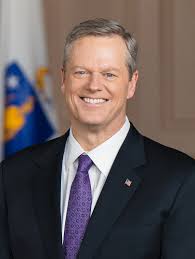
Introduction
Charlie Baker, the former Governor of Massachusetts, has played a pivotal role in the state’s political landscape during his two terms in office. His leadership style, characterized by pragmatism and bipartisanship, has garnered significant attention amid ongoing discussions about governance, public policy, and the future of the Republican Party in an increasingly Democratic state. This article delves into Baker’s recent activities, political legacy, and what his future might hold.
Baker’s Tenure as Governor
Having served as Governor from January 2015 to January 2023, Charlie Baker is celebrated for his approach to managing the state budget, education reform, and COVID-19 response strategies. Under his administration, Massachusetts experienced a significant economic recovery and substantial investment in transportation and healthcare. Baker’s commitment to bipartisanship allowed him to navigate complex political waters, earning him high approval ratings, even in a largely Democratic state.
Recent Developments
Since leaving office, Charlie Baker has continued to impact public service beyond the Massachusetts State House. In 2023, he took on a new role, becoming the President of the NCAA (National Collegiate Athletic Association). This shift highlights his commitment to youth sports and education, focusing on the welfare of student-athletes. His ability to transition from state politics to national sports governance is a testament to his leadership and adaptability.
Significance of Baker’s Leadership
Baker’s leadership style has been increasingly relevant as political polarization deepens across the United States. His proven record of cooperation with Democrats in Massachusetts demonstrates a model for governance that prioritises practical solutions over partisan divides. As the Republican Party seeks to redefine its identity in post-Trump America, Baker’s centrist approach may provide insights into attracting moderate voters and revitalising the party’s image.
Conclusion
Charlie Baker’s enduring significance in public service transcends his tenure as Governor of Massachusetts. His recent role in the NCAA signifies a dedication to fostering growth and positive change, particularly in educational environments. As governance evolves in an era marked by division, Baker’s example of bipartisanship may serve as a guiding principle for future leaders. Observers will be keen to see how his influence in national sports policy might intersect with broader political themes, potentially shaping the discourse on education and youth development in the coming years.
You may also like

The Evolving Role of the Manager in Modern Business

Understanding the Current Political Landscape in the UK
